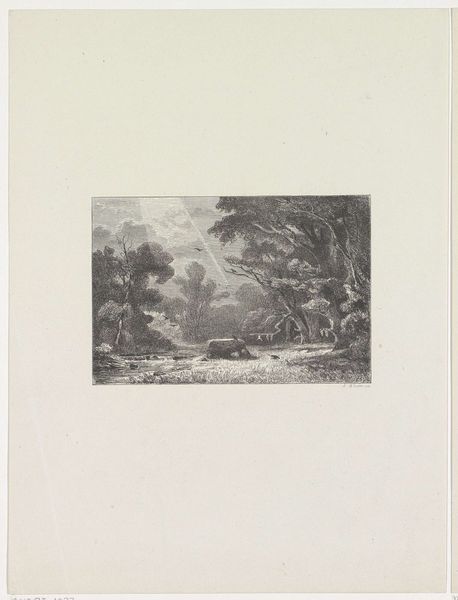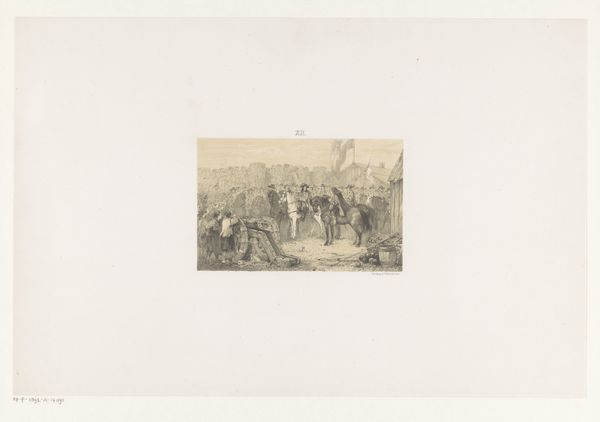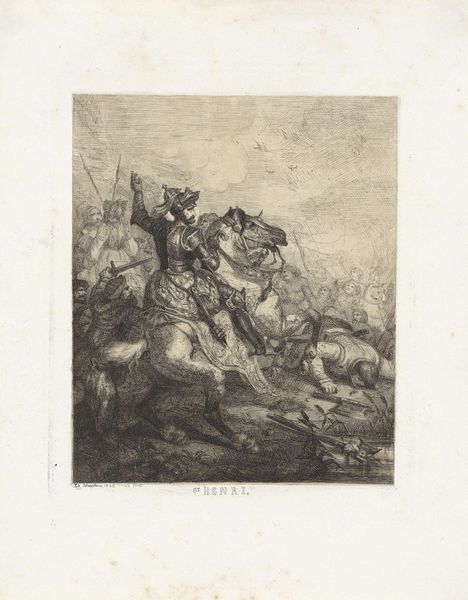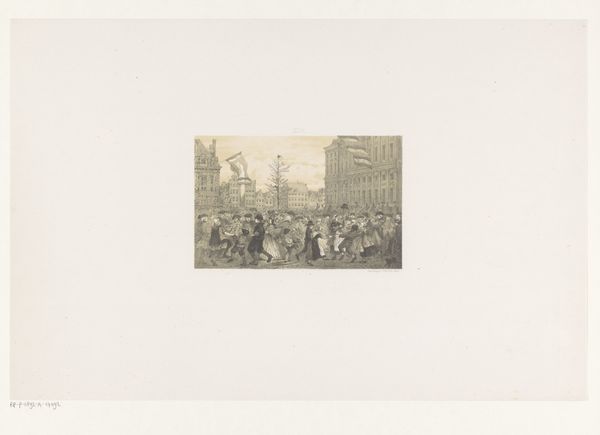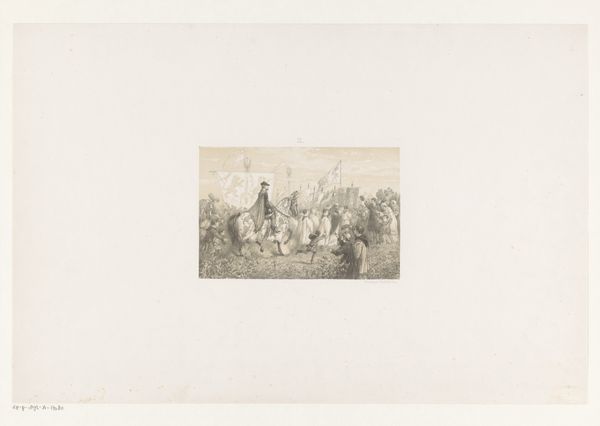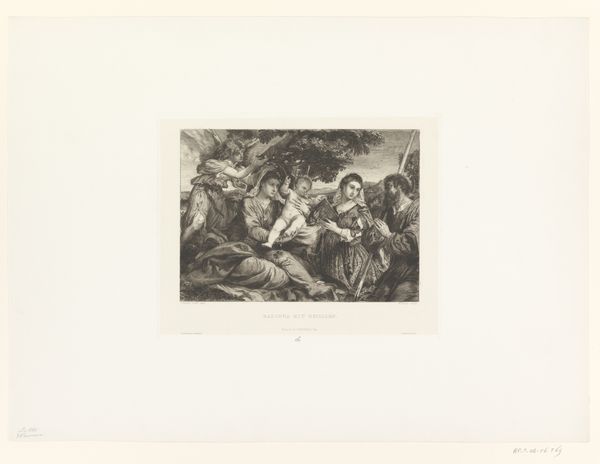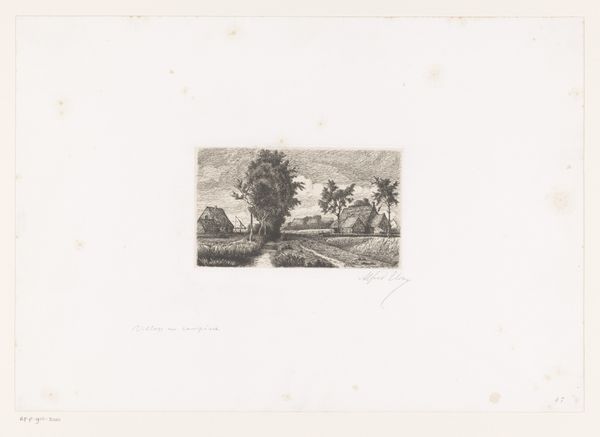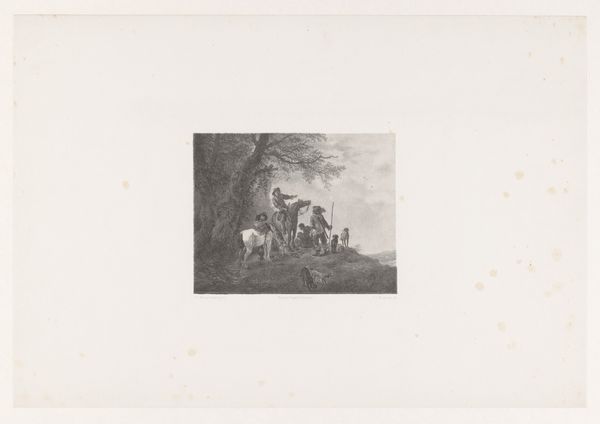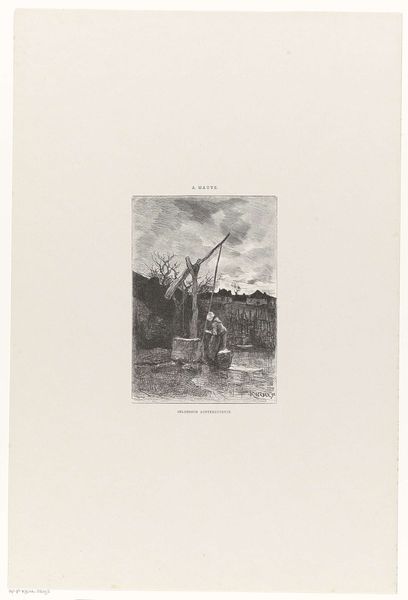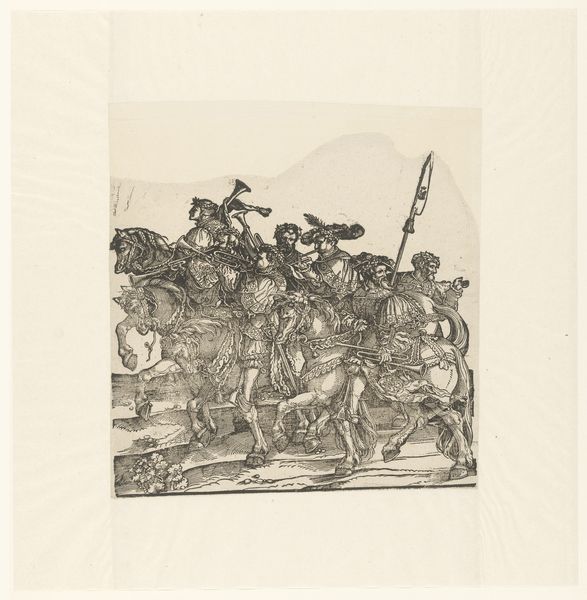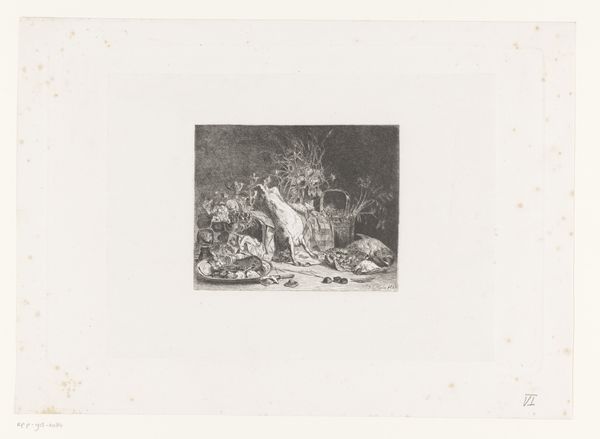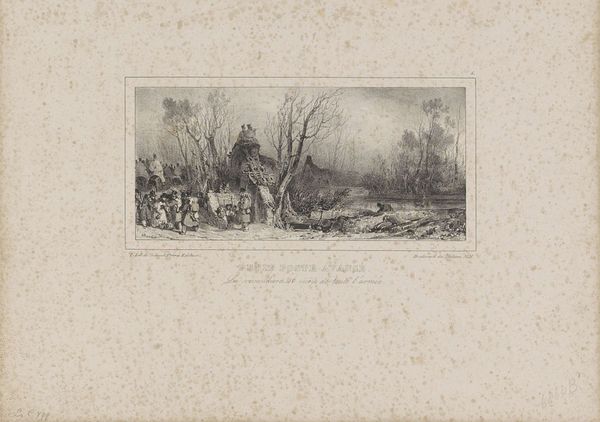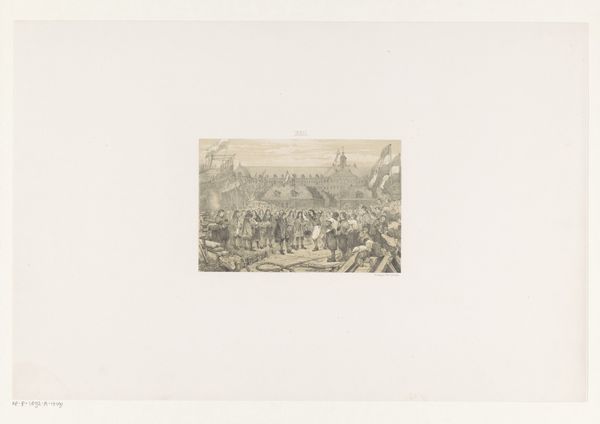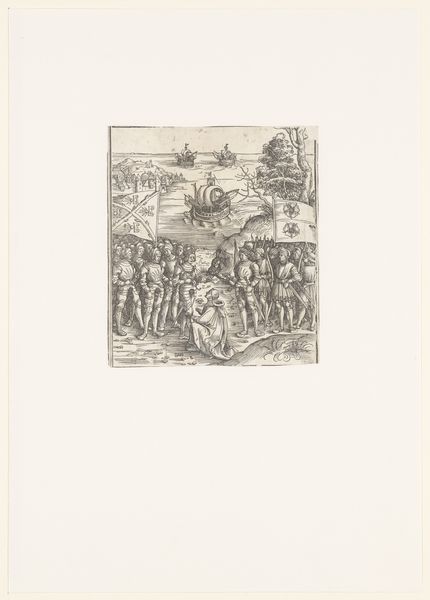
Dimensions: height 182 mm, width 278 mm
Copyright: Rijks Museum: Open Domain
Léopold Flameng made this print of General Cambronne at the Battle of Waterloo sometime after the event itself, using etching techniques. Rather than traditional art materials, the processes involved are mechanical and repeatable. The image gains its haunting quality from the crisp black lines incised into the metal printing plate. Consider the labor-intensive process: each line meticulously drawn, capturing the chaotic scene of battle with stark precision. These weren't just lines; they were calculated strokes that translated into a visual narrative of heroism amidst carnage. Through hatching and cross-hatching, Flameng created the illusion of depth and texture. The skilled application of technique allows the artist to express something of the horror and scale of the battle. In its time, this kind of printmaking would have allowed the democratization of images. Multiple impressions could be made and distributed widely, so that news from the battlefield could reach a large public. So, we can see how a relatively humble medium can serve purposes far beyond simple aesthetics, tied to the politics and consumption of information.
Comments
No comments
Be the first to comment and join the conversation on the ultimate creative platform.
